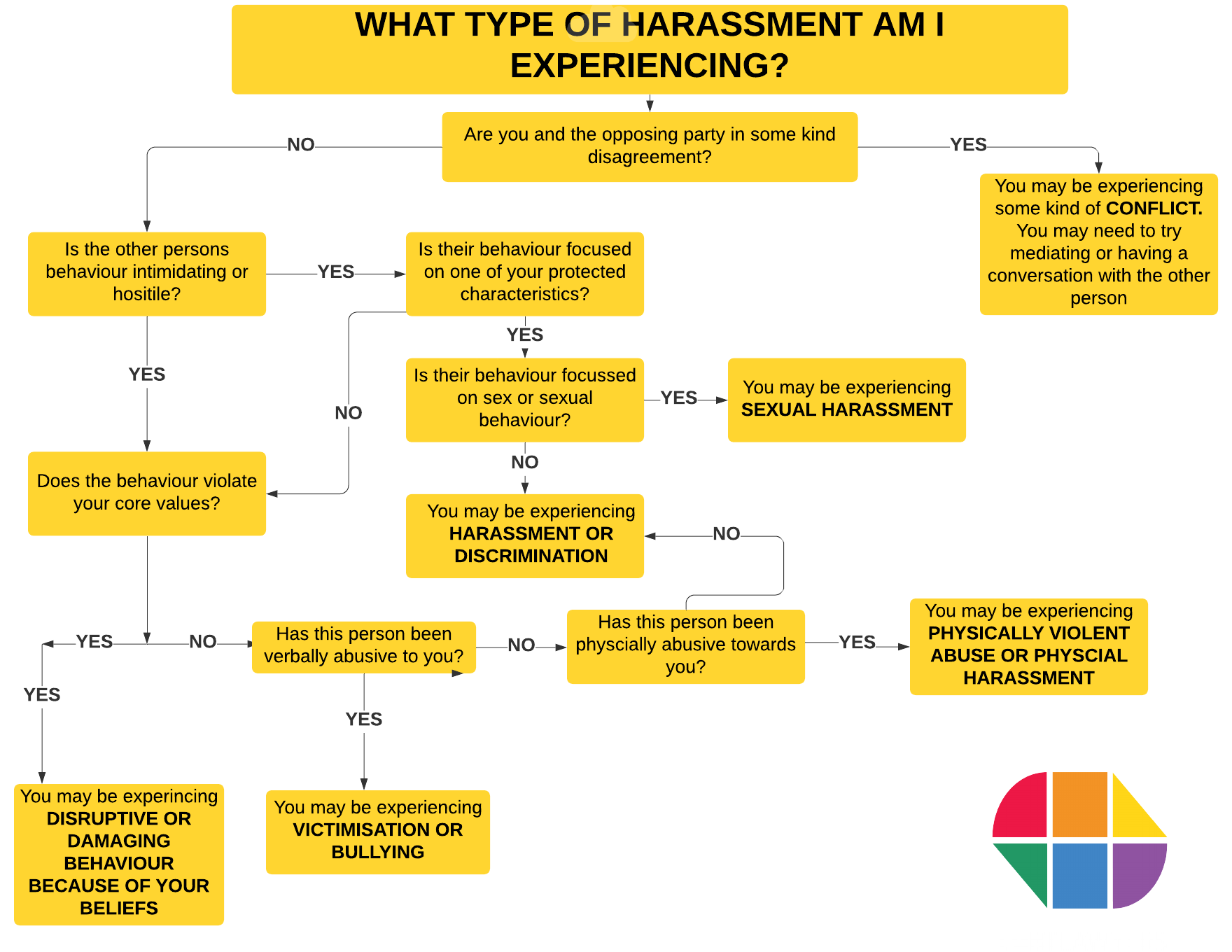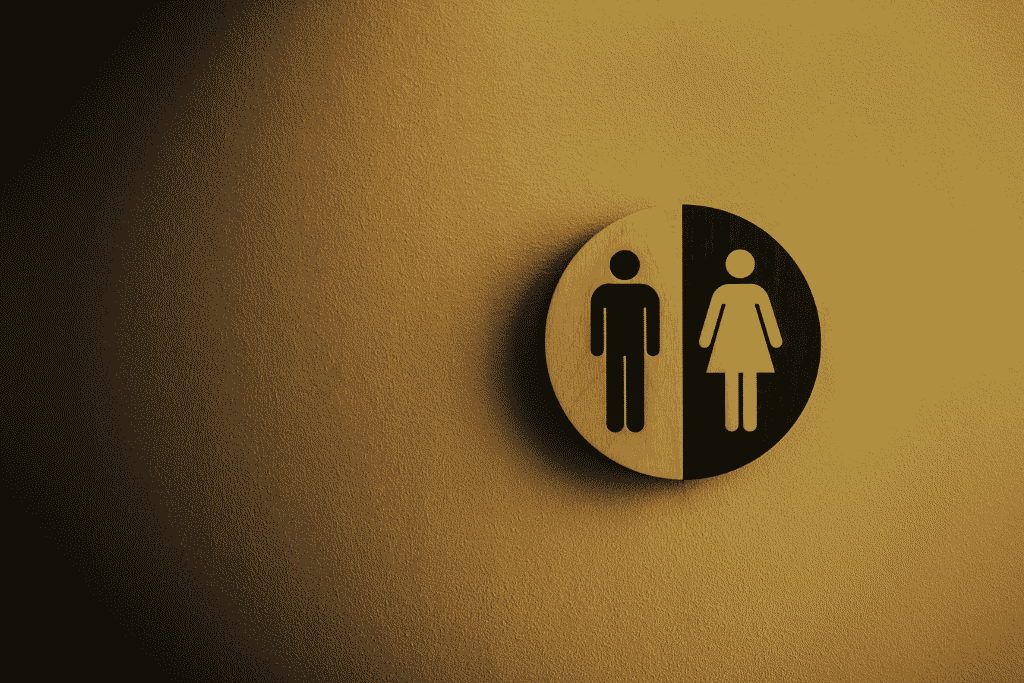Home / Legal Areas / Discrimination / Harassment
Harassment
Harassment can take many forms and can be experienced in many places. Whether it be at work, in public or between friends, knowing what harassment is and how to confront it can be crucial.
Call Today
020 3795 9020
Our Email
INFO@LGBTLAWYERS.CO.UK
Our Address
39 CHURCH ROAD, HOVE, BN3 2BE
Contents for Harassment
2. Harassment vs Victimisation
3. What Should You Do When Facing Harassment?
4. How a Lawyer Can Help if You Are Being Harassed
What Is Harassment?
Harassment is defined as one person treating another in such a way that the other feels offended, bullied or even humiliated. This behaviour is typically unwanted and causes the person to feel embarrassed and intimidated. While harassment can come from many people, and take place in many different areas, the majority of harassment claims come from the workplace.
Your sexual orientation or gender identity are protected under the Equality Act 2010, so any form of harassment against you based on these qualities is breaking the law. For example, if a woman was being called names and made to feel uncomfortable by an employer or colleague in the workplace on the basis that she is lesbian, this would be harassment and discrimination, as she is being harassed for her sexual orientation, which is a protected characteristic.
You should know…
1. You don’t have to possess a protected characteristic for harassment to apply. A straight man who is called names such as ‘gay’ or ‘poof’ for example can say he is being harassed. While the behaviour would not be covered under the Equality Act 2010 as the man is not gay, if he can demonstrate the behaviour is unwanted, the complaint for harassment will likely still stand.
2. You also don’t need to be the person being directly bullied to claim harassment. For example, if you overhear colleagues telling racist jokes, this may be harassment regardless of your race, as again, this may be unwanted conduct.
Harassment vs Victimisation
Harassment is often confused with victimisation, but the two terms cannot be used interchangeably from a legal perspective.
Harassment is unwanted behaviour or unfavourable treatment based on:
- A protected characteristic, such as sexual orientation, race, or gender reassignment; or
- Actions taken that are of a sexual nature, such as colleagues making suggestive comments
- A reaction to another form of harassment, for example, if you are refused time off by your manager after they made sexual advances towards you
Victimisation occurs when an employee is treated differently either because they have complained about harassment or discrimination, or because it is suspected they are about to. Victimisation can also apply to a second employee that has supported another in their complaint of discrimination.
What Should You Do When Facing Harassment?
If you think you may be facing harassment at work, you should always raise your concerns with your employer first and allow them the opportunity to deal with the issue.
If you simply quit your job and try to take your employer to the tribunal without first asking for their help, it’s likely you will lose.
By raising a complaint, your employer is duty-bound to take action. Should they fail to do so and the unwanted behaviour continues, you may be able to raise a claim against them provided you can prove they did not take reasonable steps to prevent repeated harassment.
Where complaints have been raised and harassment continues, your employer must prove that they have taken all reasonable steps to stop the behaviour from happening again for an employee’s claim to fail.

How a Lawyer Can Help
It’s often better to speak to a lawyer to understand whether your claim has any basis before putting yourself through the stress of preparing for a full tribunal.
If you have a claim, a lawyer will help you decide how to raise it, for example against the colleague harassing you, or against the company, or both jointly.
Finally, they will also help you evaluate any settlement offers you receive and whether you should be considering accepting them. There can be penalties for failing to accept a fair settlement offer if you go on to lose your claim.
NEED A HARASSMENT LAWYER NOW?
Get in touch today by giving us a few details and a brief outline of your matter, and we’ll put you in touch with an LGBT Lawyer.
OTHER LEGAL AREAS
CIVIL LITIGATION
CRIMINAL DEFENCE
EMPLOYMENT DISPUTES
FAMILY LAW
IMMIGRATION
LANDLORD & TENANT
WILLS & PROBATE
Discrimination: latest blogs and insights

What Is Sexual Orientation Discrimination?
Despite LGBT rights having made monumental steps towards equality, sexual orientation discrimination still occurs in the modern day. In this article, we outline exactly what sexual orientation discrimination is, alongside some examples and routes you can take if...
Harassment Not Right For Your Situation?
Haven’t been able to find the information or solution you were looking for? Here are all the discrimination services on offer from the LGBT Lawyers network.

GENDER REASSIGNMENT

POSITIVE DISCRIMINATION

SEXUAL ORIENTATION

VICTIMISATION

The LGBT Lawyers Difference
At LGBT Lawyers we tailor our legal services specifically to the LGBT community and everything that being LGBT entails. As an LGBT individual you deserve legal advice that is free from any attitude or judgement. Our network of regulated and qualified LGBT Lawyers will ensure your legal requirements are met.
LGBT Lawyers earnt its fantastic reputation from its fearless commitment to Our clients’ cases
Call Today
020 3795 9020
Our Email
INFO@LGBTLAWYERS.CO.UK
Our Address
39 CHURCH ROAD, HOVE, BN3 2BE
NEED A LAWYER who specalises in harassment TODAY?
Please give us a few details and a brief outline of your matter, and we’ll put you in touch with an LGBT Lawyer.